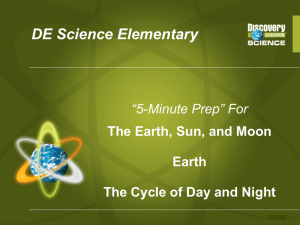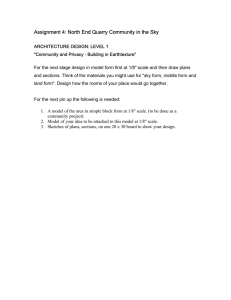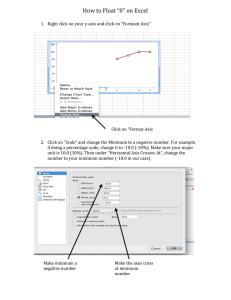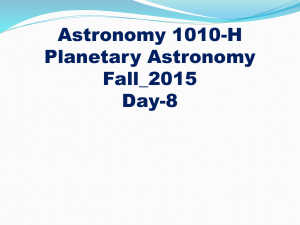What causes day and night?
advertisement
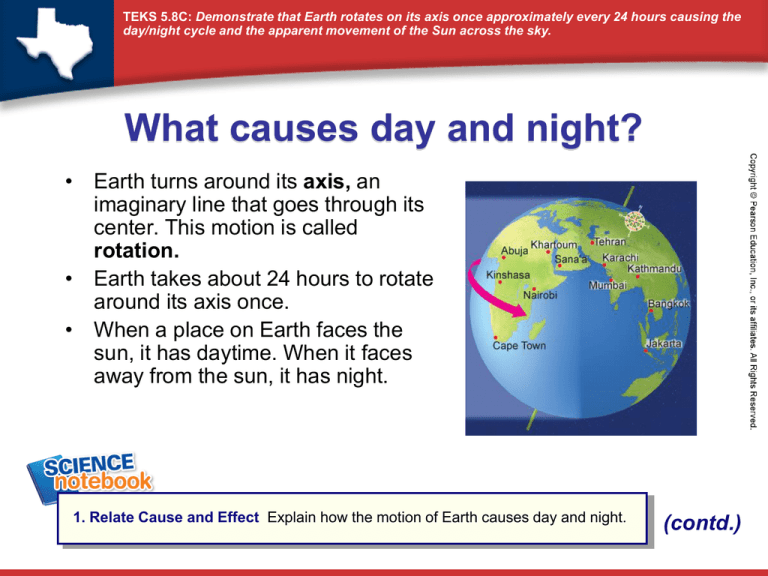
TEKS 5.8C: Demonstrate that Earth rotates on its axis once approximately every 24 hours causing the day/night cycle and the apparent movement of the Sun across the sky. What causes day and night? • Earth turns around its axis, an imaginary line that goes through its center. This motion is called rotation. • Earth takes about 24 hours to rotate around its axis once. • When a place on Earth faces the sun, it has daytime. When it faces away from the sun, it has night. 1. Relate Cause and Effect Explain how the motion of Earth causes day and night. (contd.) TEKS 5.8C: Demonstrate that Earth rotates on its axis once approximately every 24 hours causing the day/night cycle and the apparent movement of the Sun across the sky. • Earth rotates from west to east. • As Earth turns, the sun appears to move west across the sky. (contd.) TEKS 5.8C: Demonstrate that Earth rotates on its axis once approximately every 24 hours causing the day/night cycle and the apparent movement of the Sun across the sky. • Shadows change position and size as Earth moves. The sun shines from different angles, changing the shape of the shadow. 2. Explain How could you use the view from a merry-go-round as a model to show why the sun appears to move?
